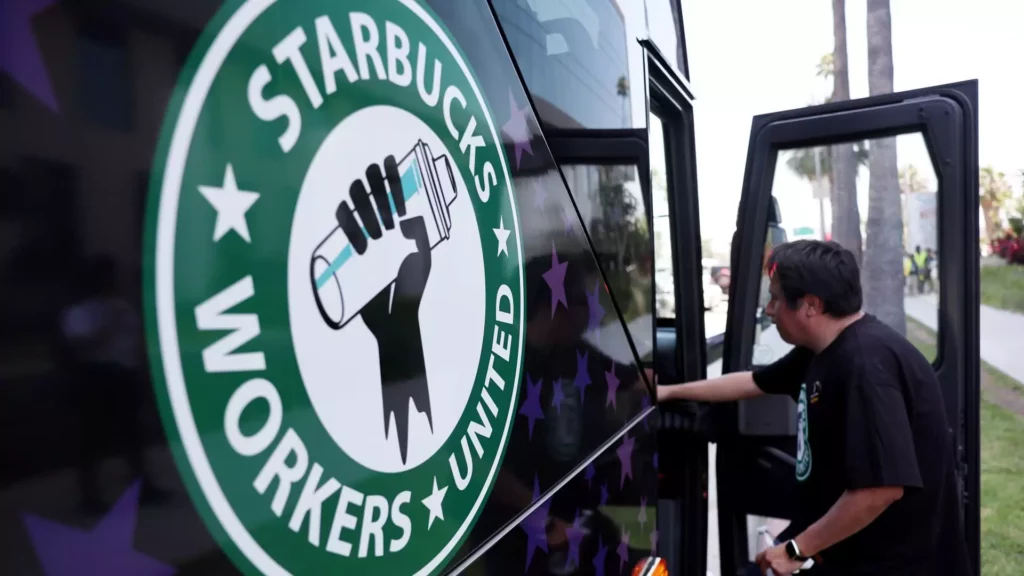In a significant move reflecting ongoing tensions between Starbucks Workers United and the coffee giant itself, reports indicate that an overwhelming 98% of union baristas have voted in favor of authorizing a strike. This decision emerges as part of a broader strategy to negotiate better working conditions and secure a solidified contract with Starbucks. Delegates from the union are scheduled to reconvene with company representatives this week, marking the final bargaining session of the year. The aim is to develop a “foundational framework” for future negotiations, although the outcomes remain uncertain.
Over the course of this year, both Starbucks and Workers United have engaged in extensive discussions at the bargaining table, reportedly dedicating hundreds of hours to the process. Despite this significant investment of time, the union has criticized the company for still failing to present a comprehensive proposal that adequately addresses barista compensation and related benefits. An ongoing concern is the accumulation of numerous unfair labor practices that remain unresolved, suggesting deeper systemic issues within the company’s labor relations.
Starbucks, however, contests this narrative, defending its commitment to competent negotiations. The company’s statement to media outlets highlighted the “meaningful agreements” reached during recent bargaining sessions, emphasizing their commitment to addressing various issues flagged by union delegates. This contention points to a stark polarization in the perceptions of the two sides regarding the negotiations’ productivity.
The recent strike authorization demonstrates a deterioration in relations following a brief incidental thaw earlier this year. After both Starbucks and the union appeared to find a “constructive path forward” through mediation in February, the rhetoric surrounding negotiations has since become increasingly adversarial. Industry analysts note that this shift could indicate that the longstanding confrontation between Starbucks and union advocates may be entering a more volatile phase once again.
This situation stands in stark contrast to the previous two years, during which Starbucks actively attempted to suppress the unionization movements that spread across its locations. Despite these efforts, the union has made notable strides, including the successful organization of over 500 company-owned Starbucks cafes since the first union elections in Buffalo just three years ago.
Recent leadership changes within Starbucks may influence the trajectory of these negotiations. New CEO Brian Niccol has pledged to engage in earnest discussions, even going so far as to enhance the company’s parental leave policy—a move that reflects an apparent willingness to adapt to employee demands. Nevertheless, reports suggest that baristas may expect smaller annual pay hikes in the coming year, a decision likely influenced by declines in sales at U.S. outlets.
As the industry watches this dispute unfold, it remains to be seen how both the union and Starbucks will navigate their opposing interests. The possibility of a strike serves as a poignant reminder of the ongoing struggle between labor rights and corporate priorities, encapsulating a broader narrative affecting workers across various sectors. Ultimately, the outcome of these negotiations may result not only in changes for Starbucks employees but could also set a precedent for labor relations in the coffee industry and beyond.

